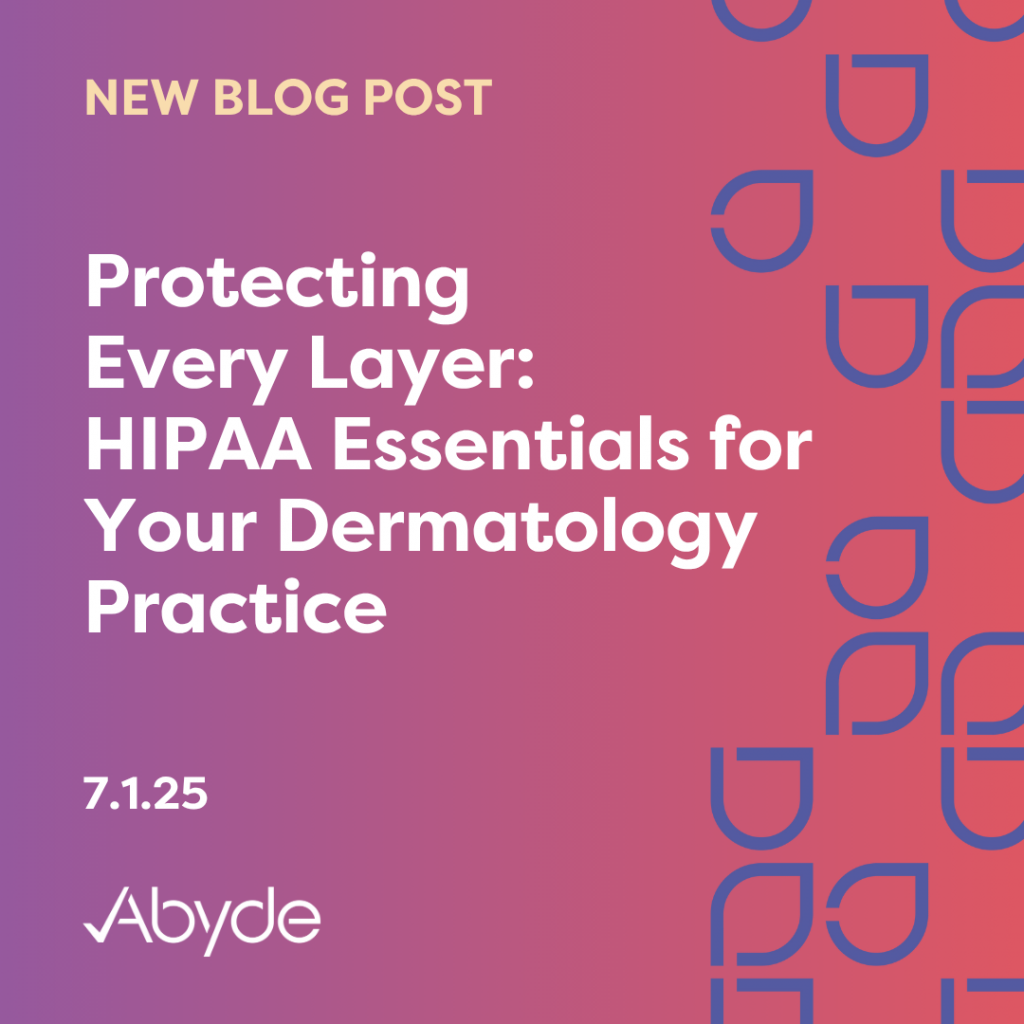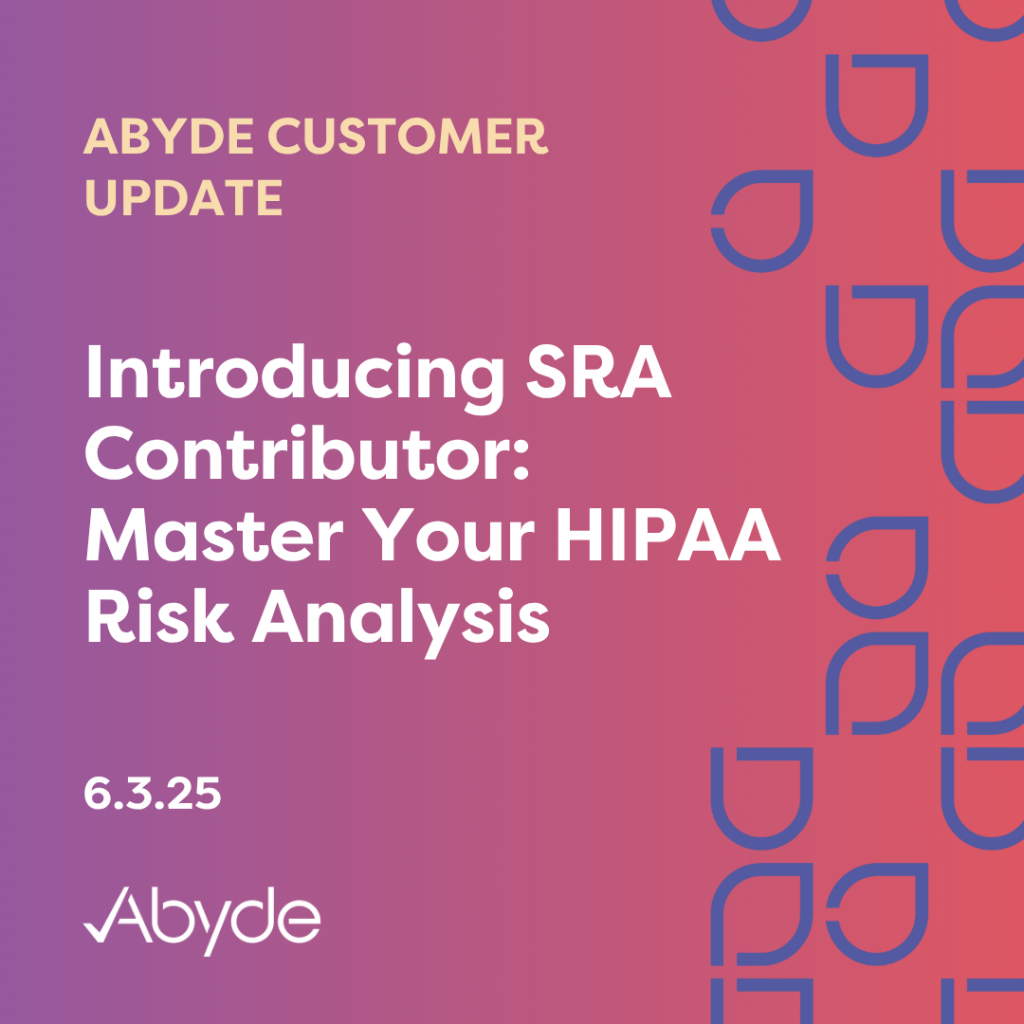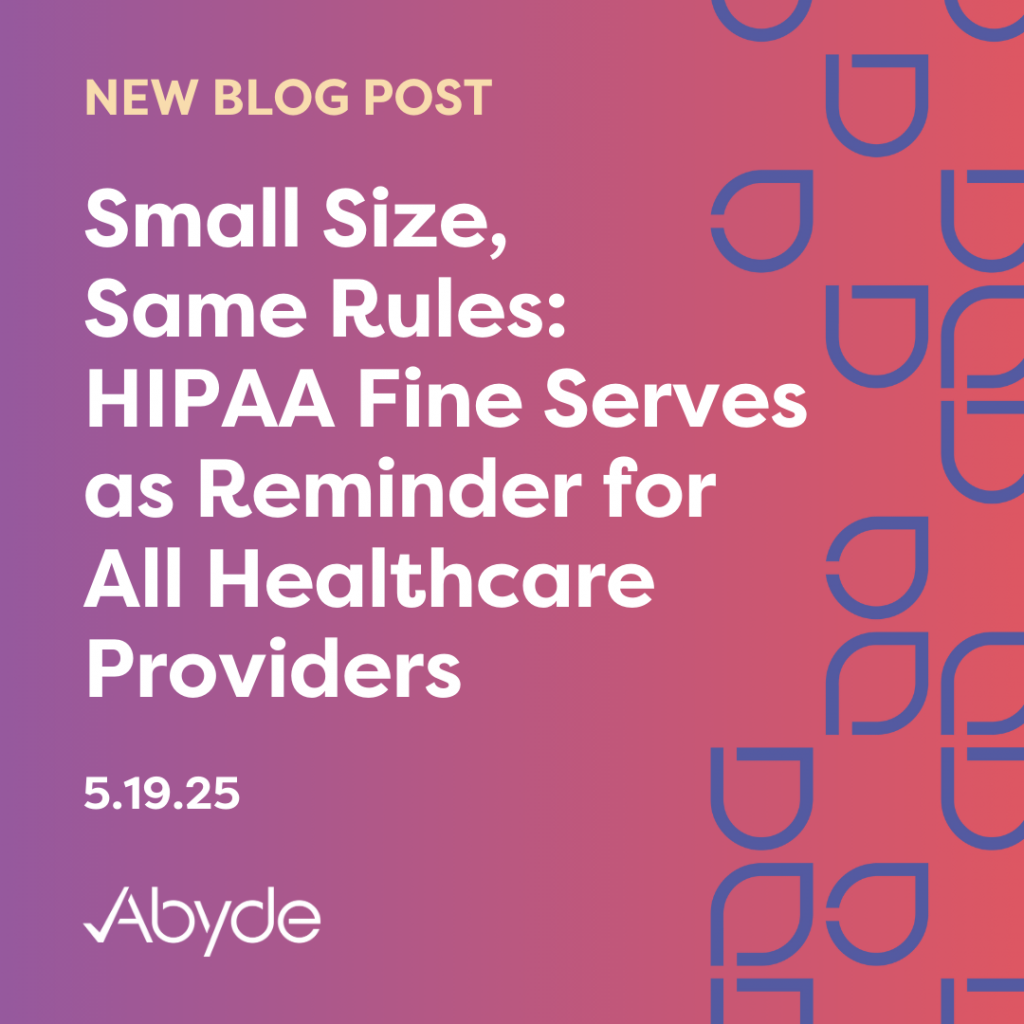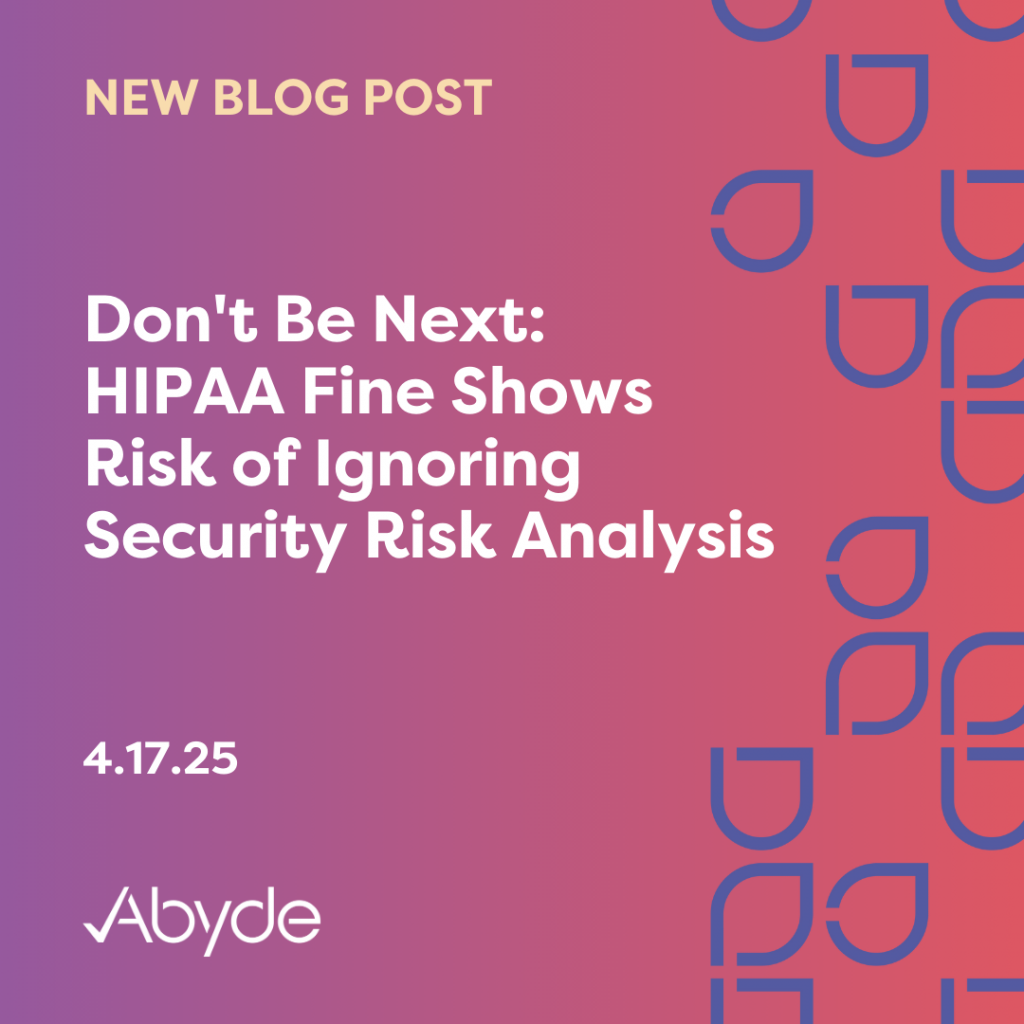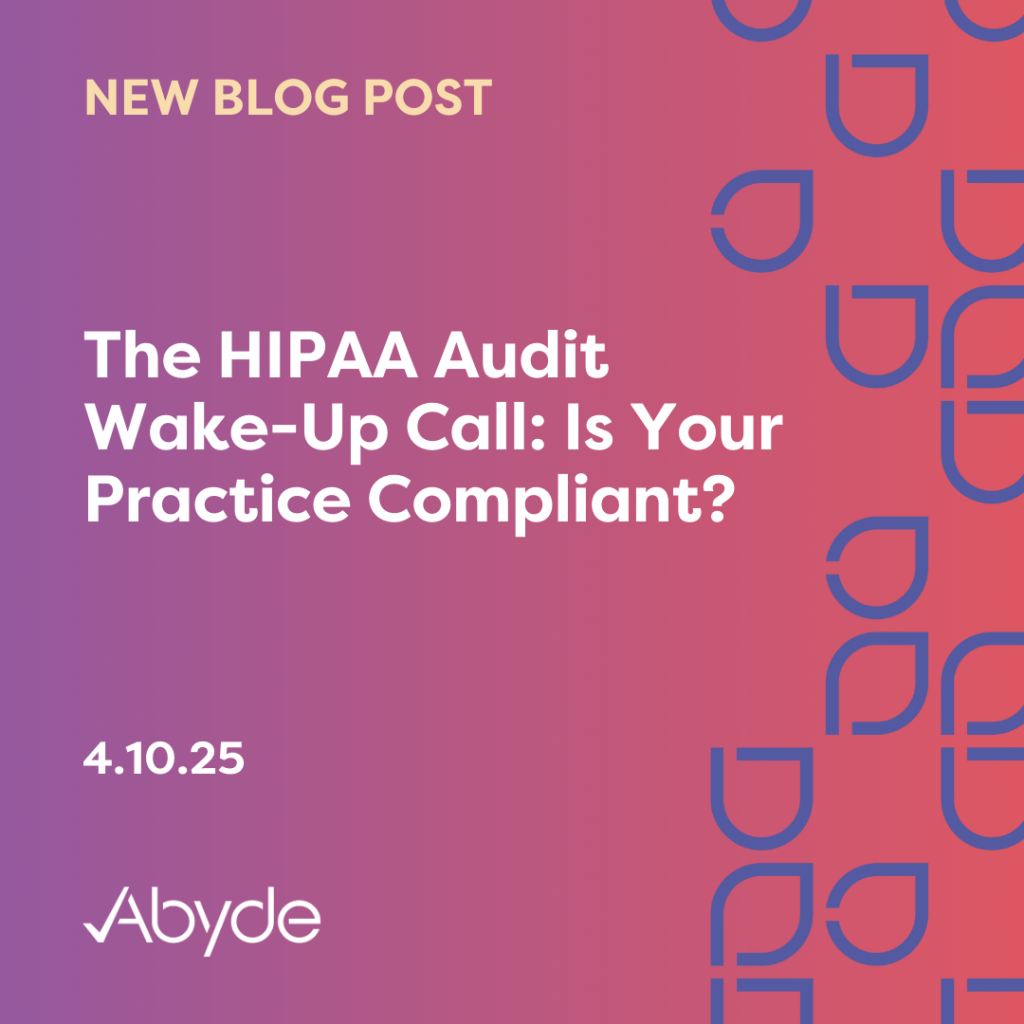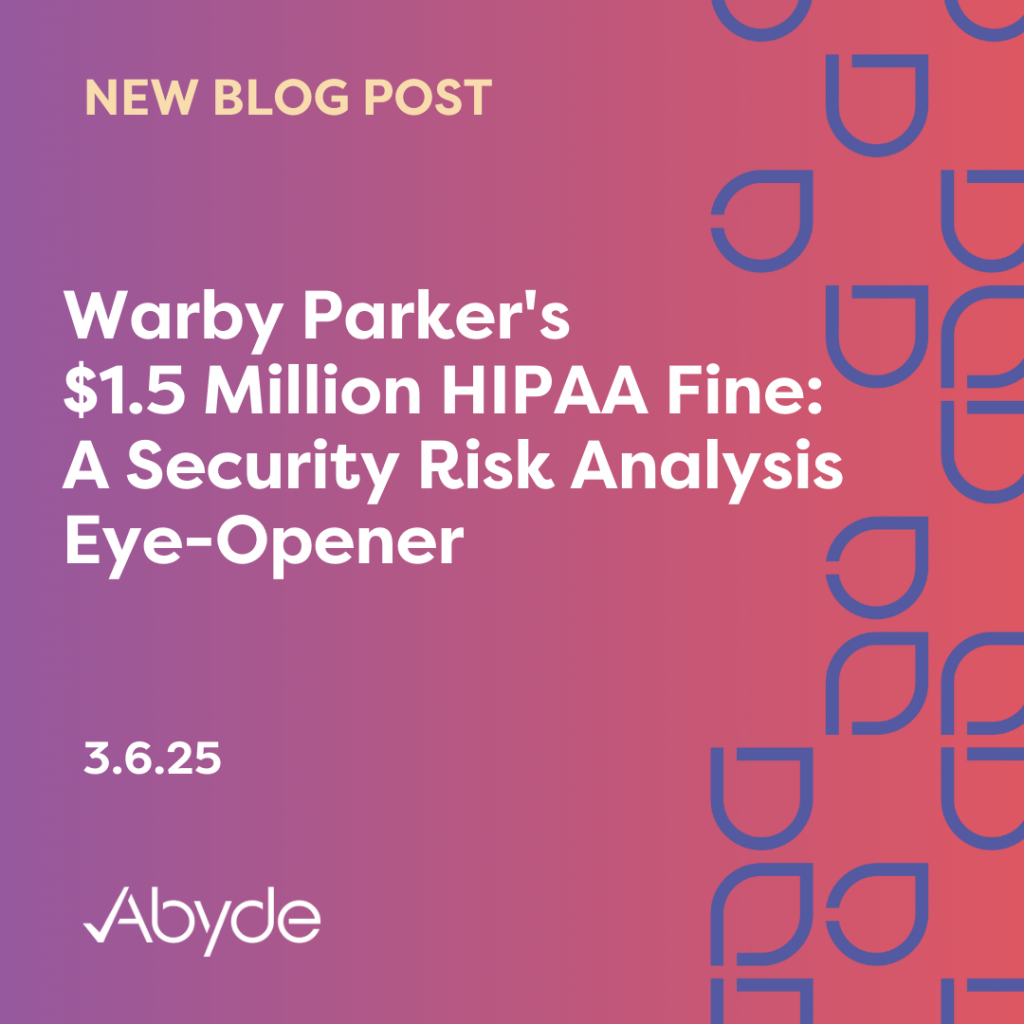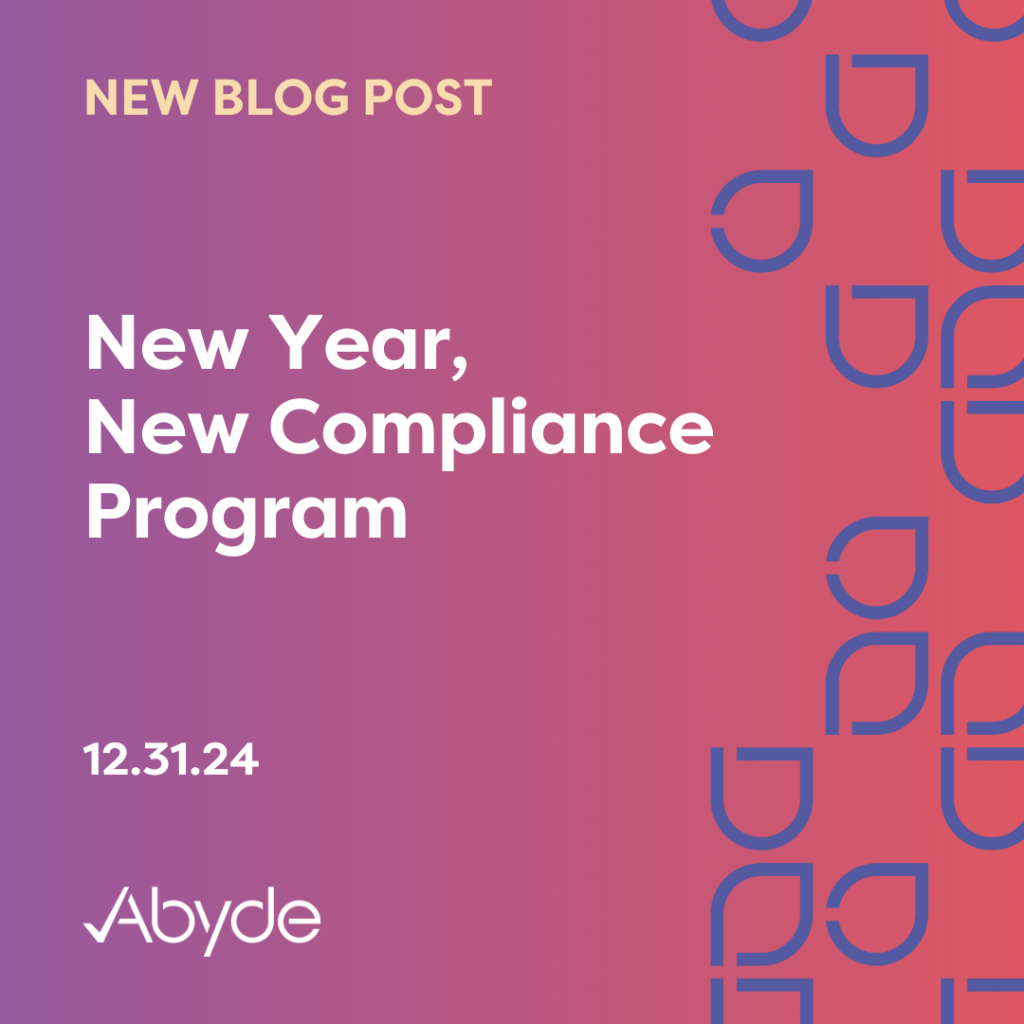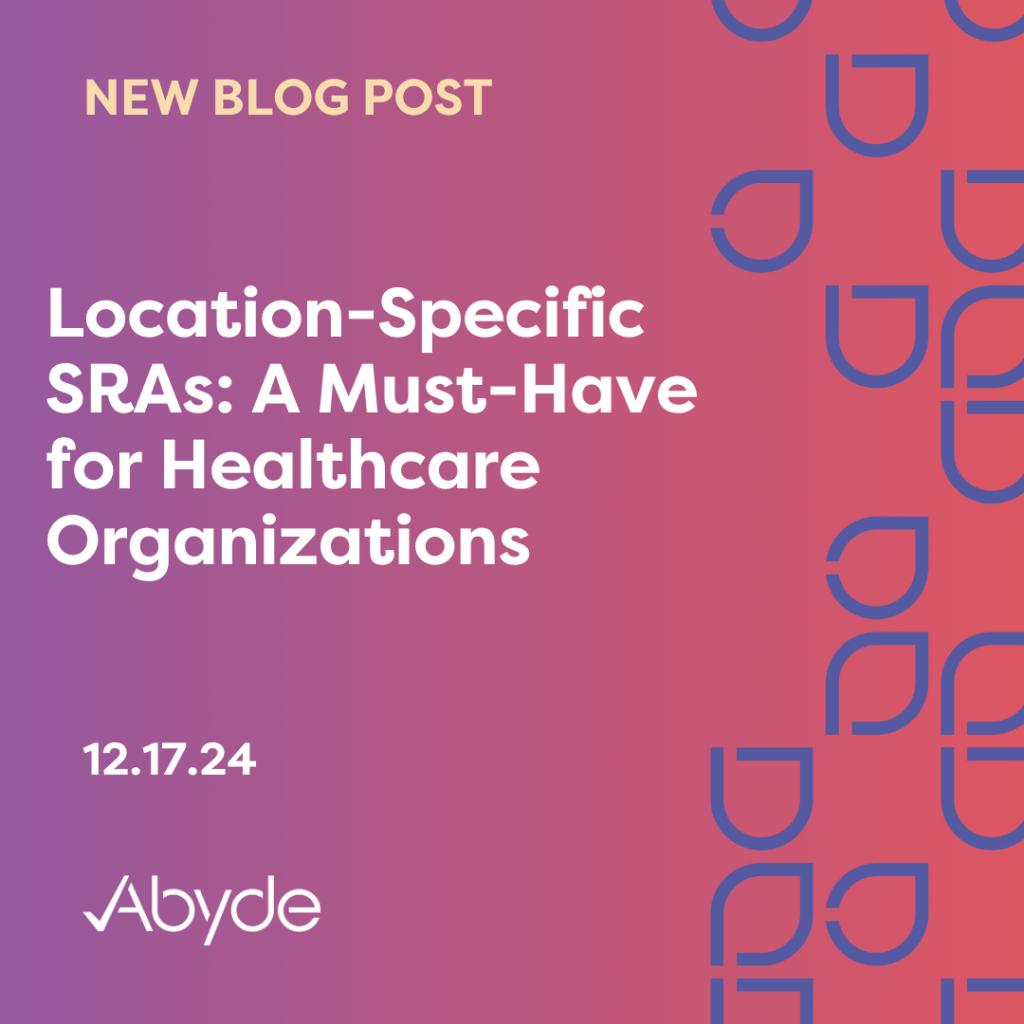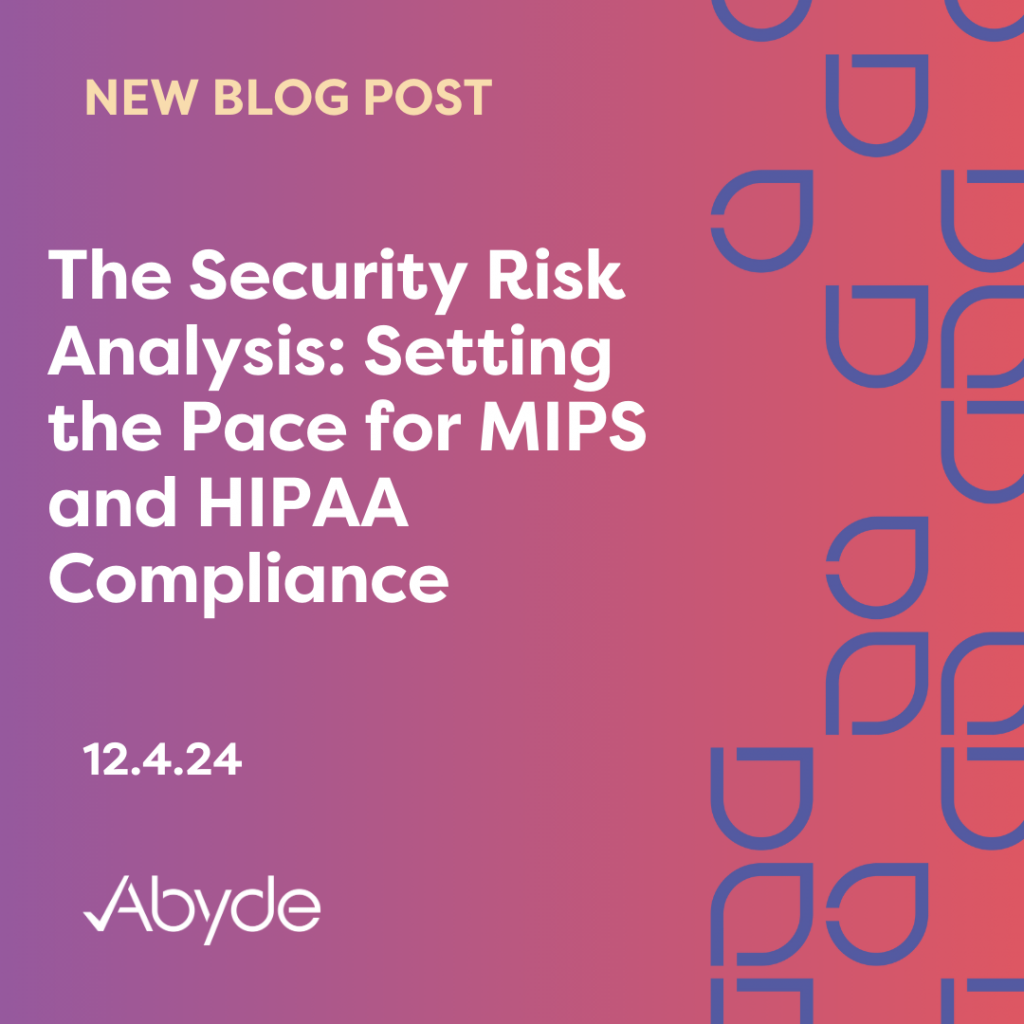July 1, 2025 HIPAA violations are not skin-deep. Dermatology practices, like all healthcare practices, are subject to HIPAA legislation. Common HIPAA violations erode reputation and patient trust, potentially costing your practice significant legal fees and fines. Dermatology practices have unique data, like photos of skin ailments and reports of skin biopsies, which must be securely handled. Sharing a picture of an abnormal mole without proper documentation, even if it looks harmless, is a HIPAA violation. Why? This is because the image includes identifiable health information about your patient. The good news? Frequent HIPAA pitfalls can easily be prevented with the proper safeguards and education. Being aware and implementing the right proactive safeguards secures your practice. Social Media 101 Before-and-after patient photos can be a powerful marketing tool on social media, but mishandling them could attract unwanted attention from the Office for Civil Rights (OCR). It’s totally normal to be proud of the great results you achieve for your patients. However, if you plan to share how your treatment helped a patient publicly, you must have that patient sign a media consent form. This form explicitly grants permission to share their healthcare procedures or results online. Beyond that, your practice must have a well-defined multimedia policy outlining how social media is handled. This ensures your entire staff is equipped and aware of their responsibilities regarding sharing information online, keeping everyone compliant, and protecting patient privacy. It’s also important to regulate your dermatology staff’s communication with patients on social media. While a patient may leave a positive review about how a chemical peel treatment made them look younger, you cannot confirm or deny whether that patient visited your practice. If you want to use a favorable review in your social media marketing, make sure the patient has signed the media consent form. Even a negative review can lead to a HIPAA violation if you’re not careful. While it’s tempting to defend your practice publicly, the cost of a violation far exceeds the initial frustration. For instance, one practice faced a $10,000 fine for disclosing Protected Health Information (PHI) on Yelp. The right move would have been to move the conversation offline and communicate with the patient privately through a secure channel. Staying Ahead: Security Risk Analysis One of the most common fines is missing a vital piece of proactive compliance. The Security Risk Analysis (SRA) is a thorough assessment of all the safeguards your practice has in place to secure PHI. The minimum annual SRA must be completed before and after a HIPAA breach, showcasing your practice is aware of vulnerabilities and documenting how they are addressed. This isn’t an isolated issue; it’s a widespread compliance gap, with only 14% of healthcare practices able to produce a compliant SRA during random audits. The recent case of a dermatology organization that faced an investigation after a substantial ransomware breach. The incomplete SRA discovered during the investigation led to a hefty $250,000 fine for the practice. It’s a common misconception that fines are solely a consequence of ransomware attacks. However, the true underlying reason for a fine is the failure to implement appropriate preventative safeguards. While ransomware attacks and cybercrimes can certainly occur despite even the most robust safeguards, a practice’s preventative and reactive response and ability to mitigate risk swiftly determine whether a fine is levied. Improper Paper Trails The entire lifecycle of PHI, from generation to deletion, needs to be handled securely. This includes properly shredding and disposing of records. Any image of a patient’s skin, old samples, etc., must be disposed of securely. First, records need to be kept for at least six years, but once disposed of, they cannot be traced to patients and must be destroyed entirely. Simply putting records in the trash isn’t going to cut it. In fact, Business Associates can handle data destruction for your practice. A dermatology practice was fined for improper disposal. Empty specimen containers, with PHI on the label, such as patient names, dates of birth, and more, were thrown in unsecured trash. After discovering that this disposal was typical for the dermatology organization for years, the practice was fined over $300,000. How to Avoid Common Dermatology HIPAA Violations The right HIPAA compliance program can avoid these common missteps. Proactive compliance, including thorough training and a maintained SRA, is key to the success of your dermatology practice. While handling your practice’s compliance program might feel overwhelming, compliance solutions can streamline this process. Intelligent software can easily pinpoint and address common violations in a centralized compliance hub. By maintaining control and proactively addressing compliance gaps, your practice can achieve peace of mind. Meet with a compliance expert today to learn more about simplifying HIPAA compliance for your dermatology practice.
Introducing SRA Contributor: Master Your HIPAA Risk Analysis
June 3, 2025 Have you ever been stumped by a HIPAA Security Risk Analysis (SRA) question because you didn’t know the answer? Even the most seasoned HIPAA Compliance Officers encounter administrative and technical security questions outside their area of expertise, and that’s completely normal. Remember, you’re not expected to have all the answers. So, how are you supposed to get the right answers for the questions you don’t know from those who do? Abyde’s latest update, SRA Contributor, helps you get the necessary answers. This feature allows you to send questions internally to other Abyde users (at your practice) or externally to trusted contacts of your Business Associates (BAs), allowing you to complete your SRA confidently. The Users section has now been updated to include both Users and Contributors. Once in this section, click the SRA Contributor tab to add external individuals, such as your IT partner, who can assist in answering SRA questions. Then, complete the SRA. We encourage users to mark uncertain questions with ‘Don’t Know’. Once the SRA is complete, Abyde users can access the SRA Contributor feature from their Scorecard module and securely send any questions as needed. Hit the Abyde Flag icon to the right of any question on your Scorecard to activate the SRA Contributor pop-up and select your Contributors. As a reminder, you can add a note to any question for your Contributors. Once flagged, the question(s) are batched and ready to be sent. Abyde recommends reviewing any and all questions for Contributors and sending them in one batch to reduce the number of emails. After all questions are flagged, send them together by hitting the send icon on the Contributor line below the question or from the global SEND button at the top of the Scorecard module. Once sent, your SRA Contributors (and other Abyde users) will receive an email to the secure SRA Contributor Portal. The Contributor Portal includes all flagged questions. Your Contributors can answer your questions, add notes, and send their responses to you once they complete the portal. From there, you will receive an email notification that your question has been answered and is ready for review. Then, you can either reject or approve an SRA Contributor’s answers. If approved, their answer and note (if present) replace your initial response on the SRA. If rejected, you can send the question again to other contributors or manually change the answer yourself. SRA Contributors’ answers and Contributor Portal links (if they never answered the question) can also be deleted from the Scorecard by clicking the Trash Can icon. Why This Matters A thorough and accurate Security Risk Analysis (SRA) is paramount for safeguarding patient data and ensuring compliance. It is the foundation of a compliant practice. The SRA Contributor enables you to complete the SRA more efficiently and confidently, enhancing collaboration with your business associates and other Contributors who manage the more technical aspects of your practice. This ensures that the required SRA is completed accurately and thoroughly, giving you confidence in the integrity and completeness of your answers. To learn more, contact our support team at support@abyde.com, or call 1.877.816.1620.
Small Size, Same Rules: HIPAA Fine Serves as Reminder for All Healthcare Providers
May 19, 2025 HIPAA compliance is not just a recommendation; it’s a requirement, no matter how small your organization is. The latest HIPAA fine is a testament to this, with Vision Upright MRI the latest practice to be penalized. The small California MRI center experienced a significant breach, which exposed several violations in the fallout. Acting Office for Civil Rights (OCR) Director Anthony Archeval emphasized the widespread cybersecurity risks, noting that these threats impact healthcare providers of all sizes: “Cybersecurity threats affect large and small covered healthcare providers.” Vision Upright MRI was fined $5,000 and will now face a two-year Corrective Action Plan (CAP), being monitored by the OCR. This fine showcases that no practice, big or small, must be followed to keep patient data safe. What Happened? At the end of 2020, Vision Upright MRI experienced a breach in its systems due to an insecure server. This cybercrime exposed over 21,000 patients’ medical images, leading to the OCR’s investigation. The investigation discovered that the MRI center had never completed a Security Risk Analysis (SRA). The SRA thoroughly examines a practice, reviewing all current safeguards to secure Protected Health Information (PHI). These safeguards can include physical barriers the practice has implemented, like locked doors and alarms, and the administrative techniques the practice follows, like routinely checking access to sensitive patient data. The SRA is critical for a compliant practice and should be completed annually and after any breaches. While the SRA is a fundamental requirement for a practice, it is unfortunately often overlooked. The OCR has implemented a Risk Analysis Initiative to ensure practices are completing this requirement, and has reinstated the audit program, reviewing if regulated entities are maintaining this document. In addition to missing the SRA, Vision Upright MRI did not properly notify affected parties within 60 days, violating the Breach Notification Rule. The Breach Notification Rule requires practices to notify patients within 60 days of discovering a breach, regardless of how many were impacted. This short timeline allows patients to take the necessary precautions for the safety of their data. The practice should also provide credit monitoring. Since this event impacted well over 500 patients, the threshold to consider the situation a large breach, Vision Upright MRI also needed to notify the media and the OCR within a 60-day timeline. Communicating this is imperative, allowing the OCR to swiftly begin its investigation and potentially affected patients to receive information through media channels. These serious missteps led to the monetary settlement and years of government monitoring. Streamlining HIPAA Compliance Even a small practice doesn’t require overwhelming resources to be HIPAA compliant. The right compliance program can simplify HIPAA compliance. With smart solutions, the SRA can be completed easily, reviewing questions and potential vulnerabilities the practice faces. Additionally, breaches can be reported in intelligent software, with compliance experts assisting practices through alerting patients and the OCR. Meet with an expert today to learn how to automate your compliance program.
Don’t Be Next: HIPAA Fine Shows Risk of Ignoring Security Risk Analysis
April 17, 2025 Let’s make this clear: The Security Risk Analysis (SRA) is at the foundation of a compliant practice. The SRA is the proactive assessment of your practices’ physical, technical, and administrative safeguards. Physical safeguards include alarms, codes, and other procedures or devices your practice might deploy. Technical safeguards involve cybersecurity protocols, like firewalls, antivirus software, encryption, and other security measures. Lastly, the administrative safeguards are your practice’s actions, such as using visitor IDs, maintaining a sign-in sheet, or even posting about patients on social media. The latest HIPAA fine is another reminder of the importance of the SRA in protecting patient data. This is the sixth Risk Analysis Initiative enforcement since the end of last year. The Office for Civil Rights (OCR) is serious about ensuring that practices know this requirement. This focus has remained consistent even during administration transitions. Said best by OCR Acting Director Anthony Archeval, “A failure to conduct a risk analysis often foreshadows a future HIPAA breach.” What Happened? Northeast Radiology, P.C. (NERAD), a healthcare provider specializing in medical imaging clinical services in New York and Connecticut, experienced a significant breach that exposed nearly 300,000 patients’ Protected Health Information (PHI). The breach, which occurred from April 2019 to January 2020, was caused by unauthorized individuals accessing radiology images of patients due to a compromised server. When the OCR began investigating the practice in March 2020, it was discovered that NERAD did not have an SRA. Due to the absence of this document and the sheer size of the breach, the organization was fined $350,000 and will undergo a two-year Corrective Action Plan (CAP). Completing an SRA NERAD’s HIPAA settlement with the OCR is a clear reminder that your practice needs to complete an SRA long before a breach occurs. While an SRA might seem daunting, addressing problems before patients’ information is at risk is much easier. Completing this risk assessment can help your practice identify vulnerabilities before they escalate into compliance issues. While the SRA mandates practices to analyze and review existing procedures thoroughly, this process doesn’t need to be overwhelming or costly. With smart solutions, your practice can answer simple questions about your practice while the software intuitively builds out an SRA report, analyzes the current situation, and provides recommendations to mitigate potential risks. To learn more about how your practice can streamline the SRA, schedule a consultation with an expert today.
The HIPAA Audit Wake-Up Call: Is Your Practice Compliant?
April 10, 2025 The HIPAA Audit program is back in business. Since the introduction of the Health Information Technology for Economic and Clinical Health (HITECH) Act, the Office for Civil Rights (OCR) has been able to audit practices, ensuring they follow HIPAA standards. While the revival of the audit program was announced last May, new information was confirmed at the latest HIPAA Summit, with 50 Covered Entities and Business Associates being selected to be audited. This program was last active from 2016-2017, which highlighted that, unfortunately, noncompliance with HIPAA is far too common in regulated entities. In fact, only 14% of Covered Entities, like medical practices, could produce a compliant Security Risk Analysis (SRA). The healthcare industry is entering a new era of HIPAA compliance in the wake of the largest ever healthcare data breach. New HIPAA legislation is being reviewed and the Office of the Inspector General (OIG) is recommending stricter audit processes. With millions in fines already imposed in 2025, proactive preparation is now critical for healthcare providers and their business partners. What is the Audit Program? The audit program was first introduced when the HITECH Act was enacted in 2009. While the majority of the investigations the OCR conducts are reactive, resulting after a patient complaint or a breach, the audit program is random. The OCR will thoroughly review the selected organization’s documentation and current processes as the audit program resumes. A compliant HIPAA program entails much more than training; it also requires comprehensive, continuous protocols to ensure patient data is being protected. The basis of a compliant practice is being able to present an SRA. As stated earlier, previous audit programs spotlighted the shortcomings of regulated entities completing this. The SRA is a thorough assessment of your practice. This includes reviewing the safeguards your practice currently has in place. Technical, physical, and administrative safeguards all play a role in securing Protected Health Information (PHI). This would include a deep dive into the technology your practice uses, the physical protections your practice might have (like alarms), and the administrative policies your practice follows. Completing this analysis will allow your practice to identify vulnerabilities before a breach occurs. Proactive compliance, addressing issues before they affect patients, is key to a successful practice. In addition to providing an SRA, practices must also prove compliance with other pillars of HIPAA compliance, such as the Right of Access (or sending requested medical records to practices in a timely manner), the Breach Notification Rule, the Privacy Rule, and more. After the rise in ransomware attacks in recent years, with a nearly 300% increase in ransomware-related breaches, regulated entities’ cybersecurity practices will likely be scrutinized, ensuring that those audited are aware of their technology responsibilities. What can I do? Your practice must be aware of HIPAA and implement the appropriate safeguards to be prepared for the possibility of an audit. While this can be a daunting task, it is imperative for your practice to follow HIPAA compliance before a situation occurs. Thankfully, smart software can streamline and simplify HIPAA for your practice, providing a roadmap to compliance. With the right solution, your practice can see exactly what the OCR requires, which will be asked for if ever audited. To learn more about becoming audit-ready, schedule an educational consultation with our team of experts.
Warby Parker’s $1.5 Million HIPAA Fine: A Security Risk Analysis Eye-Opener
March 6, 2025 Warby Parker, the popular prescription eyewear retailer with a strong online presence and expanding physical stores, was recently fined $1.5 million for a HIPAA violation. This enforcement highlights that no matter how big your organization is, the government can and will investigate breaches of PHI. In 2025, the Office for Civil Rights (OCR) has issued over $5 million in fines so far, almost all of which involved a missing Security Risk Analysis (SRA). The SRA thoroughly assesses your practice’s physical, technical, and administrative safeguards for securing patient Protected Health Information (PHI). The Warby Parker fine is a stark reminder that the SRA, a detailed examination of your PHI safeguards, is not just a recommendation; it’s a necessity. What Happened? In late 2018, Warby Parker experienced numerous unusual login attempts on its site. It was discovered that customer logins were breached through credential stuffing or when information was pulled from unrelated breaches. For example, a customer’s login was likely reused on another hacked site. The OCR began its investigation in December 2018, but the flurry of attacks continued. Warby Parker, which also provides eye exams, issued several addendums to its initial breach report, revealing that additional customer and patient accounts were compromised. Additional attacks occurred in 2020 and 2022. Overall, these cybercrimes impacted almost 200,000 patients. As the OCR investigated Warby Parker, it discovered that Warby Parker did not conduct an adequate security risk analysis, implement sufficient technical safeguards to prevent further attacks, or regularly review system access. These failures to protect PHI led to a $1.5 million Civil Monetary Penalty (CMP), demonstrating that even massive organizations need to comply with HIPAA requirements. How to Protect Your Organization The first step to HIPAA compliance for your practice is proactively maintaining an SRA. By evaluating and identifying your vulnerabilities, your practice can address these weaknesses before they become serious problems. As stated before, no matter how small or large your organization is, you must complete the SRA annually. Regular reviews of PHI access are essential to identify and address breaches promptly, minimizing the number of affected patients. Implementing an access log is crucial as well, ensuring staff is held accountable for documenting when they interact with PHI. Utilizing a compliance software solution can alleviate the stress of managing numerous requirements. Software solutions can streamline compliance and offer a SRA and an access log within the program. By outsourcing compliance, your team can focus more time on patient care. To learn how to simplify HIPAA compliance for your practice, schedule a consultation with a compliance expert today.
New Year, New Compliance Program
December 31, 2024 After a year of record-breaking breaches and fines in 2024, starting the new year with your HIPAA compliance buttoned up is crucial. A compliance program is a comprehensive plan to ensure compliance with HIPAA guidelines. It’s much more than yearly training; it’s what you do daily to uphold your commitment to patient data safety. The new year is about implementing new routines and actions for improvement. That’s why now is the time to get the right compliance program in place. Here are three key goals to help you start on the right track in 2025. Complete a Security Risk Analysis The first step to HIPAA compliance is completing a Security Risk Analysis (SRA). The SRA is an assessment of the administrative, technical, and physical safeguards your practice has in place to protect patient data. While the SRA might seem like a simple requirement to adhere to HIPAA regulations, it is actually one of the most overlooked, with only 14% of practices able to present documentation of a compliant SRA. The SRA helps your practice identify vulnerabilities and creates a roadmap for HIPAA compliance, guiding your practice on what needs to be addressed. This documented analysis of your practice is the foundation of a compliant practice. Establish a Culture of Compliance A culture of compliance is the understanding that everyone—from leadership to staff—recognizes the importance of protecting patient data. To achieve a compliant practice, it’s vital that all staff understand and continuously commit to following HIPAA. The culture of compliance involves much more than just training; it encompasses every decision employees make when dealing with data. This includes using the appropriate encryption measures when sending emails to patients and ensuring that staff members discuss only the minimum necessary amount of Protected Health Information (PHI) when required. To cultivate a culture of compliance in your practice, staff must have access to comprehensive resources to train, learn, and document anything regarding PHI. This could include interactive training portals, required access logs, and easy access to all learning materials. By providing streamlined compliance, your practice not only establishes a culture of compliance but also enforces it, holding all staff accountable if they don’t adhere to HIPAA guidelines. Get Organized – Digitize Documentation In the new year, do a self-audit of your HIPAA documentation. If asked, could you easily find specific policies? While meeting HIPAA requirements is essential for a compliant practice, you must also be able to present documentation as proof. The year is about embracing change. While most might picture their HIPAA manual as an overflowing binder, this is not the only option for managing documentation. It’s time for a change. Cloud-based compliance programs allow you to access your HIPAA manual easily by logging into your account. Gone are the days of rifling through a binder to find a specific policy or procedure—a web-based HIPAA manual easily generates and organizes your documentation, saving you time and keeping all versions of your documentation in a centralized location. Sticking to Resolutions If achieving streamlined HIPAA compliance has been a long-avoided New Year’s Resolution, this is the year to begin. With the right program, you can simplify compliance and have complete visibility into what is necessary to remain compliant. To learn more about how to get compliant this new year, schedule a consultation with a compliance expert today.
Location-Specific SRAs: A Must-Have for Healthcare Organizations
December 17, 2024 Keeping all locations in line with HIPAA regulations can be quite a challenge, especially when managing a multi-location practice. It’s a complex puzzle that requires careful attention to detail and a proactive approach to ensure compliance across the board. And we hate to break it to you, but a blanket Security Risk Analysis for your organization isn’t enough. A Security Risk Analysis, or SRA, is a thorough review of your organization’s physical, administrative, and technical safeguards to protect patient data. Even when you’re managing compliance at a single location within a multi-location organization, you are responsible for ensuring an SRA is completed for your location. The Office for Civil Rights (OCR) is serious about this requirement, as indicated by a recent significant fine. A penalty of over $500,000 was recently announced for the Children’s Hospital of Colorado system. While this investigation was sparked by a phishing attack, one of the major findings was missing SRAs for all locations. Completing this SRA is imperative. As the OCR spearheads new enforcement and initiatives, it’s time to get compliant. What is a SRA? The SRA is an in-depth review of everything your practice does to ensure patient data is safe. This means everything from whether your practice utilizes alarms and codes on doors to the servers you use and even how your staff handles patient intake, like how the sign-in sheet process works. The SRA is the first step of a compliant practice because it allows you to review your vulnerabilities and make changes to uphold your commitment to keeping data safe. The SRA is also a requirement for MIPS. Unfortunately, the SRA is a commonly missed requirement for medical practices. In fact, 86% of all practices could not show an adequate SRA in the last round of random HIPAA audits. Completing a sufficient Security Risk Assessment (SRA) is essential for maintaining a compliant medical practice. This process is closely linked to the Office for Civil Rights (OCR) Risk Analysis Initiative, which mandates that medical practices and organizations carry out this required assessment. Recently, the Bryan County Ambulance Authority was fined $90,000 for failing to conduct an SRA, marking the first enforcement action under this new initiative. This incident demonstrates the OCR’s commitment to this initiative and its dedication of resources to ensure compliance. Importance of Location-Specific SRAs When conducting a SRA, assessing every location within your organization is vital. While performing a single SRA for the entire entity might seem easier, compliance is more intricate and requires ongoing attention rather than being a one-off endeavor. Each location has distinct vulnerabilities that must be acknowledged and addressed. For instance, one location might have different vendors than another, and another location might be in an older building, with different security to keep Protected Health Information (PHI) safe. Although some overarching requirements may come from the main location, capturing each site’s specific conditions is essential. This thorough documentation demonstrates that every location takes compliance seriously, addresses vulnerabilities, and keeps patient data safe. How to Complete an SRA With the right resources, managing and completing an SRA for a multi-location practice can be simplified. Organization is key: ensuring each location completes all SRAs and can be easily accessed in a centralized location. Your organization can efficiently complete this requirement by having a tailored set of questions for each location. To learn more about streamlining your multi-location SRAs for your organization, schedule a consultation with a HIPAA expert today.
The Security Risk Analysis: Setting the Pace for MIPS and HIPAA Compliance
December 4, 2024 As a healthcare provider, tackling your daily to-do list probably feels like running a marathon without a finish line at times. You’re tasked with managing a successful business, keeping up with ever-changing legislation and new technology while ensuring that your top priority of patient care never falls behind. Despite the challenging course, there’s a benefit to keeping pace with both quantity and quality. Providers are rewarded for going the extra mile thanks to Value-Based payment programs like MIPS and other government incentives like the HIPAA Safe Harbor Law. What is MIPS? You’ve most likely heard of the Merit-based Incentive Payment System (MIPS) and might already be a participant in it. Whether it’s a Quality Payment Program or new legislation passed into law, the government continually emphasizes the importance of being proactive rather than reactive and providing incentives for doing so. This is why it’s valuable to know whether your organization is eligible to participate in government programs (you can check here). Many of these different program requirements align with the standards your practice already has to meet under HIPAA law—protecting your patients, checking off compliance requirements, and receiving incentives can often be done all in one stride. To take a quick step back, MIPS is one of two payment tracks under the Medicare Quality Payment Program. The Centers for Medicare and Medicaid Services (CMS) uses this system to measure eligible clinician performance and reward high-value, low-cost care. MIPS participants can receive a payment adjustment to their Medicare reimbursements based on their performance scores across four different categories: Quality: The type of care you deliver based on specific measures of performance. Promoting Interoperability: Focuses on patient engagement and electronic exchange of information using Electronic Health Record (EHR) technology to improve patient access to their health information and exchange of information between providers. Improvement Activities: Your participation in clinical activities that work towards improving care coordination and patient engagement and safety. Cost: Assesses the cost of care you provide in relation to your Medicare claims. The Importance of the Security Risk Analysis (SRA) Before you can engage with the various performance measures, you must first meet a prerequisite for participating in the MIPS Promoting Interoperability performance category. This requirement is crucial not only for achieving HIPAA compliance but also for benefiting from other government incentives: the Security Risk Analysis (SRA). Conducting an SRA involves evaluating any potential risks to your organization’s electronic Protected Health Information (ePHI) and implementing necessary security updates and safeguards to address any identified vulnerabilities. Your organization must complete an SRA at least once a year to comply with MIPS and HIPAA standards. Additionally, it’s important to review and update the assessment regularly throughout the year to reflect any changes in your processes. Getting Compliant for MIPS Beginning your compliance journey can be overwhelming, but it is essential to take advantage of government initiatives such as MIPS. Intelligent software solutions can help keep your practice on track by outlining the requirements for HIPAA compliance and offering a streamlined SRA that meets MIPS standards. To learn more about how to become compliant for MIPS, schedule a meeting with a compliance expert today.
A Nearly Million Dollar Mistake: Heritage Valley Health System
July 3, 2024 Did you know that ransomware attacks are becoming increasingly common in healthcare? Since 2018, there has been a whopping 264% increase in large ransomware breaches. The devastating impact of a ransomware breach on an organization is wide-reaching, regardless of its size, as seen with the Change Healthcare breach. It’s imperative to take the proper precautions to ensure that Protected Health Information (PHI) is secure against hacking attempts. At the center of the latest fine, Heritage Valley Health System (HVHS), which operates in Pennsylvania, Ohio, and West Virginia, fell victim to ransomware attacks. These attacks infected HVHS systems, affecting sensitive patient information. As the Office for Civil Rights (OCR) reviewed the major data breach, several pieces of required documentation, such as a Security Risk Analysis (SRA) and an emergency plan, were absent. This missing documentation has led to a $950,000 fine and three years of corrective monitoring. Let’s explore what you can do to prevent this nearly million-dollar mistake. Importance of an SRA The purpose of the SRA is to review your risks and vulnerabilities regarding the management of ePHI (electronic Protected Health Information). This comprehensive analysis notes the physical, technical, and administrative controls to protect your patient’s PHI. Your SRA is documented proof that your organization understands its weaknesses and is making strides to address them and better protect patient data. While the SRA is a very important document, it is frequently missed. From the last round of random HIPAA audits, which have resumed recently, only 83% of practices and Business Associates could produce a sufficient SRA. SRAs are vital for practice compliance, showcasing growth, and best practices in safeguarding patient data. Check out our recent blog post here to learn more about the SRA. Why do I need plans in place? When running a medical practice, it’s important to be prepared for any situation that could arise. That’s why policies and procedures are so important. If your practice faces a scenario that may compromise PHI, your team needs easy access to a plan for handling the situation calmly. By addressing potential challenges well in advance, your team will feel empowered and confident in their ability to respond. Moreover, as part of your preventive measures, it’s beneficial to designate specific roles and responsibilities for your staff. This ensures that everyone is aware of their duties in any given situation. Cybersecurity Measures Unfortunately, healthcare practices have become very common victims of ransomware attacks. To prepare your organization for this, follow best cybersecurity practices, such as encryption, reviewing access controls, and creating unique sign-ons for all employees. Healthcare organizations should prioritize technical safeguards like encryption, access controls, and multi-factor authentication. However, security goes beyond technology. Implement security awareness training for staff, establish a data breach response plan, and maintain regular backups. Regularly conduct risk assessments and evaluate the security practices of third-party vendors. It’s important to consider partnering with an IT company offering valuable expertise. They can recommend the right tools, update you on evolving threats, and monitor your systems for suspicious activity. This layered approach will strengthen your systems and prepare you for potential attacks. How Smart Software Can Help Fines for HIPAA non-compliance can be staggering, but there are alternatives to the manual tracking and paper binders you may be used to. Intelligent software systems are designed to save you time and headaches and ultimately protect your practice to avoid audits and fines. Software empowers your team to manage your program easily and enables a culture of compliance in the office. It streamlines commonly overlooked requirements such as the SRA with dynamically created documentation and develops comprehensive plans, policies, and procedures so you stay current with the latest requirements. Better yet, when using cloud-based software solutions, you get 24/7 secure access and real-time updates when compliance regulations change. Schedule an educational consultation today to learn more about how software solutions can protect your practice.
